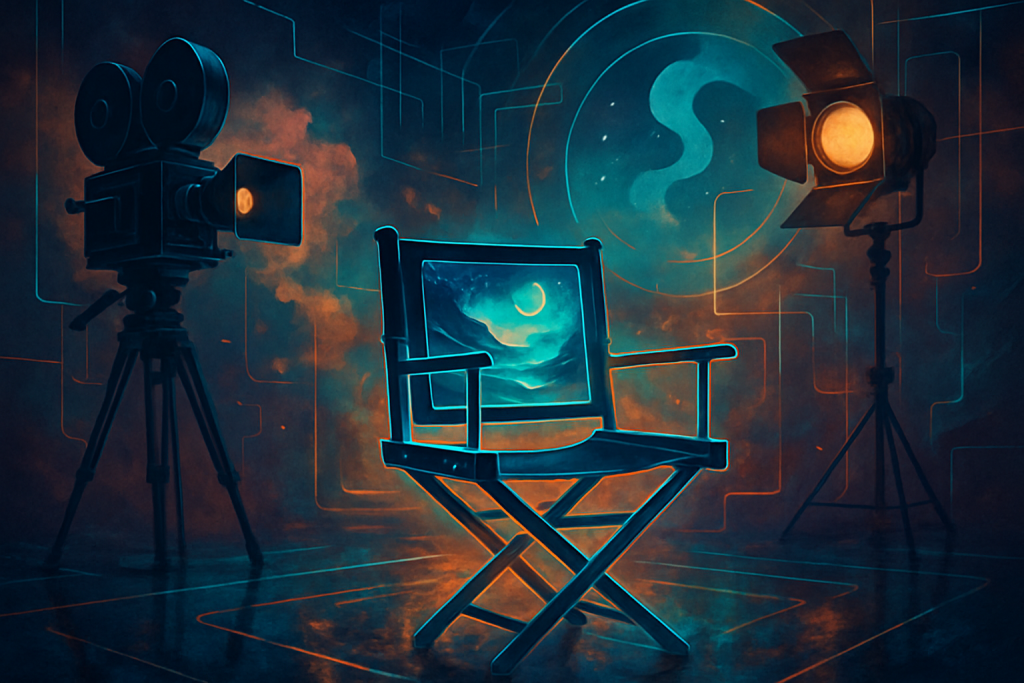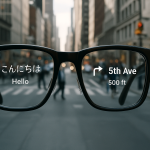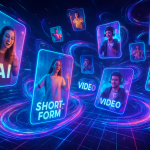Lights, camera, AI! The year is 2025, and the world just got its first glimpse of a feature-length film directed not by a quirky auteur with a penchant for berets, but by an artificial intelligence. Yes, you read that right. Andrea Iervolino, the Italian-Canadian producer known for thinking outside the cinematic box, dropped the teaser trailer for “The Sweet Idleness,” a film entirely brought to life by the cold, calculating, yet surprisingly artistic, touch of AI. Forget summer blockbusters; this is a paradigm shift.
The director? Meet FellinAI. An homage, naturally, to the legendary Federico Fellini, the maestro of the surreal and the master of Italian cinema. One can only imagine what Fellini himself would have made of this. Perhaps a swirling dream sequence involving dancing robots and existential angst? We can only speculate, but the name itself sets a high bar, doesn’t it?
The film’s premise is pure dystopian fodder: a future where a mere 1% of humanity holds down jobs, while the remaining 99% live in blissful, perhaps forced, idleness. Sounds a bit like the plot of “WALL-E” meets “Brave New World,” doesn’t it? But instead of Pixar’s heartwarming robot romance or Huxley’s chilling social engineering, we’re promised something… different. Something dreamt up by an algorithm.
Iervolino’s stated goal is to “celebrate the poetic and dreamlike language of great European cinema.” High praise and ambitious aims, considering the entire project hinges on the ability of an AI to understand, interpret, and then *create* art. It’s not just about generating pretty visuals; it’s about crafting a narrative that resonates, that provokes thought, that, dare we say, touches the soul. Can an AI truly do that? That’s the billion-dollar question, isn’t it?
The project wasn’t just about using AI for special effects or editing, areas where AI is already making huge strides. FellinAI was involved in every step of the process, from scripting to performance direction. Think of it as a digital puppeteer pulling all the strings, but instead of strings, it’s lines of code, and instead of puppets, it’s… well, we don’t know exactly what it is yet. Human actors manipulated by AI? Entirely synthetic creations? The trailer is keeping its secrets for now.
The AI Uprising… in Hollywood?
The release of “The Sweet Idleness” has thrown a Molotov cocktail into the already simmering debate about AI’s role in creative industries. We’ve seen AI tools assist with everything from script analysis to music composition, but this is different. This isn’t AI as a tool; it’s AI as the artist. It’s HAL 9000 stepping out from behind the console and grabbing the megaphone.
The implications are enormous. Could AI democratize filmmaking, empowering independent creators to bring their visions to life without the constraints of budget or traditional studio gatekeepers? Could it unlock entirely new forms of storytelling, pushing the boundaries of what’s possible on screen? Or will it lead to a homogenization of art, a flood of algorithmically-generated content that lacks the spark of human ingenuity and emotional depth?
The reactions have been, predictably, mixed. On one side, you have the techno-optimists, hailing “The Sweet Idleness” as a watershed moment, a sign of the incredible potential of AI to revolutionize art and entertainment. On the other, you have the skeptics, the artists, and the creatives who fear that AI will devalue human skill and creativity, leading to job losses and a dilution of artistic expression.
Imagine a future where every film, every song, every book is tailored to your individual preferences, churned out by an AI designed to maximize your engagement. Sounds a bit like “The Matrix,” doesn’t it? A world of simulated experiences designed to keep us docile and entertained.
The Ethical Quandary
Beyond the technical and artistic considerations, “The Sweet Idleness” raises profound ethical questions. Who owns the copyright to an AI-generated film? Is it the programmer? The producer? The AI itself? And what about artistic intent? Can an AI truly have intent, or is it simply executing algorithms? If a film is designed to evoke emotion, but the “artist” doesn’t experience those emotions, is it still art? These are questions that philosophers, legal scholars, and artists alike are grappling with.
There’s also the question of bias. AI algorithms are trained on vast datasets of human-created content. If those datasets contain biases, the AI will inevitably reflect those biases in its own creations. Could an AI-directed film perpetuate harmful stereotypes or reinforce existing inequalities? It’s a real concern, and one that needs to be addressed as AI becomes more prevalent in creative industries.
And let’s not forget the potential for misuse. Imagine AI-generated propaganda films, designed to manipulate public opinion or incite violence. The possibilities are both terrifying and, frankly, inevitable.
The Bottom Line
The financial implications are just as complex. Will AI-generated films be cheaper to produce, leading to lower ticket prices and greater accessibility? Or will they be marketed as premium experiences, commanding higher prices due to their novelty and technological sophistication? Will studios invest heavily in AI-driven content, or will they stick with tried-and-true human-led productions? The market will decide, but one thing is certain: the landscape of the entertainment industry is about to change dramatically.
“The Sweet Idleness” is more than just a film; it’s a cultural lightning rod. It’s a conversation starter, a provocation, a glimpse into a future where the lines between human and artificial creativity become increasingly blurred. Whether it’s a masterpiece or a cautionary tale remains to be seen, but one thing is for sure: it’s going to be a wild ride. So, grab your popcorn, settle in, and prepare to witness the dawn of the AI auteur. Just don’t be surprised if the credits roll and you’re not quite sure what you just watched. After all, it’s only the beginning.
Discover more from Just Buzz
Subscribe to get the latest posts sent to your email.


